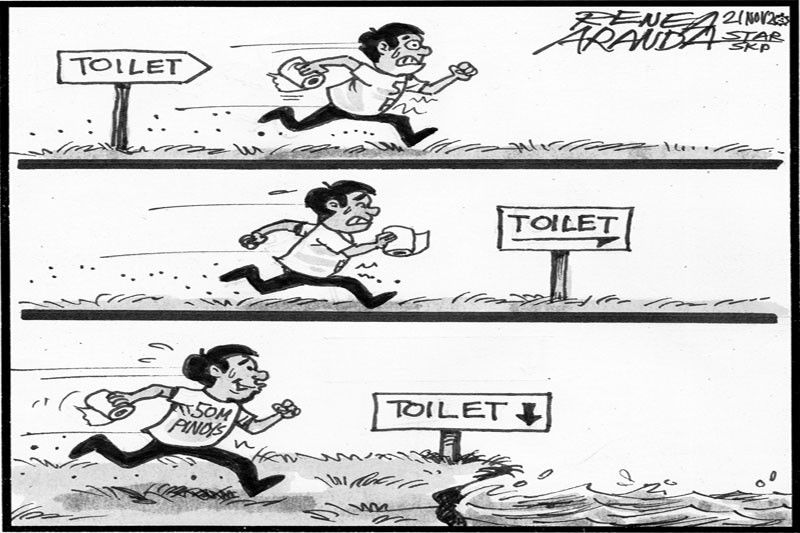EDITORIAL - Sustainable sanitation

With vaccines against coronavirus disease 2019 now set to be rolled out for emergency use in the United States, hopes are high that the pandemic can come to an end within several months.
Governments can then return their attention to other public health problems, particularly diseases that are also potentially deadly, which can arise simply due to the lack of basic sanitation facilities. For example, approximately 297,000 children under five years old die from diarrheal diseases each year – or more than 800 every day – due to poor sanitation, unsafe drinking water and poor hygiene, according to the United Nations.
In the Philippines, the Department of Health reports that 10 million families or around 50.3 million Filipinos lack access to “safely managed sanitation services,” with 24 million of them using limited or unimproved toilets or having no toilets at all. The DOH defines “safely managed sanitation services” as toilet facilities that are not shared with other households, and where the excreta are transported to a treatment center off-site.
The information was released as the country joined in the observance of World Toilet Day on Nov. 19. The special day was launched by the UN in 2001 to highlight the lack of this basic need for public health. The UN estimates that about 4.2 billion people worldwide are living without access to safely managed sanitation.
This year the special day emphasizes that the lack of toilets can be aggravated by climate change. The Philippines is seeing this in the recent natural calamities, as torrential flooding damages toilets, septic tanks and treatment plants, and human waste contaminates food crops. The next epidemic could be just around the corner as flood-ravaged communities grapple with the loss of basic sanitation facilities.
The UN’s Sustainable Development Goal No. 6 is water and sanitation for all by 2030. In the Philippines, the UN estimates that P30 billion is needed annually to achieve universal access to sanitation. The UN is also pushing for the recycling of wastewater, which is gaining urgency as growing populations compete for dwindling sources of clean water.
The DOH says that only six percent of the country’s 1,634 cities and municipalities can boast of sanitation certification that defecation in the open has been completely eradicated. Many households also lack access to piped water for regular handwashing – a basic health protocol for preventing COVID-19 transmission. Even when the coronavirus pandemic is over, the need for universal access to modern toilets and sanitation facilities must be addressed.
- Latest
- Trending























